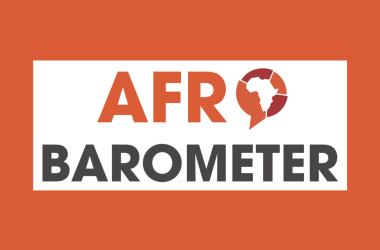News / National
6 in 10 Zimbabweans consider leaving the country?
06 Aug 2025 at 08:21hrs |
2 Views

About six out of ten Zimbabweans are considering emigrating in search of better opportunities, as economic challenges continue to deepen across the country, a new Afrobarometer report shows.
The pan-African survey network, which gathers data on governance, democracy, and quality of life, found that despite official claims of economic improvement, many Zimbabweans remain pessimistic about the local economy.
Conducted through face-to-face interviews in respondents' preferred languages, the report highlights economic factors as the primary drivers for emigration. Some 58% of those considering leaving cited the pursuit of better work opportunities, while 32% sought to escape economic hardship and poverty.
South Africa remains the top destination for prospective emigrants, with 38% naming the country despite reports of xenophobic attacks and labor exploitation. Other popular destinations include Europe (23%) and North America (12%).
Afrobarometer estimates that over 2 million Zimbabweans currently live outside the country, many having fled the ongoing economic crisis. Professionals such as nurses and teachers are reportedly among those preparing to leave.
The study also revealed that education level significantly influences emigration plans: while only 35% of those with little or no schooling have considered leaving, this figure rises to 75% among the most educated.
"Youth are especially inclined to consider emigration, with 68% contemplating leaving, compared to just 26% of the elderly," the report noted.
Migration challenges, including difficulties crossing borders, were found to be common. The report states that 58% of respondents have thought about leaving Zimbabwe, with 34% doing so "a lot." Those with higher education and greater lived poverty reported more difficulties in crossing borders.
Men (63%) and urban residents (65%) were more likely to have considered emigration than women (53%) and rural dwellers (53%).
Despite these migration trends, the report found broad support for free movement within southern Africa, with three-quarters of Zimbabweans endorsing unrestricted cross-border travel for trade and work. However, 67% said that in practice, crossing borders is "difficult" or "very difficult."
Attitudes towards migrants were generally positive: 86% expressed no issues living next door to foreign workers or immigrants, and 77% felt similarly about refugees.
Still, over 60% believed the government should reduce or stop immigration of foreign job seekers.
The report underscores the strong economic motivations behind Zimbabweans' desire to emigrate, reflecting ongoing challenges in the country's economic landscape.
The pan-African survey network, which gathers data on governance, democracy, and quality of life, found that despite official claims of economic improvement, many Zimbabweans remain pessimistic about the local economy.
Conducted through face-to-face interviews in respondents' preferred languages, the report highlights economic factors as the primary drivers for emigration. Some 58% of those considering leaving cited the pursuit of better work opportunities, while 32% sought to escape economic hardship and poverty.
South Africa remains the top destination for prospective emigrants, with 38% naming the country despite reports of xenophobic attacks and labor exploitation. Other popular destinations include Europe (23%) and North America (12%).
Afrobarometer estimates that over 2 million Zimbabweans currently live outside the country, many having fled the ongoing economic crisis. Professionals such as nurses and teachers are reportedly among those preparing to leave.
The study also revealed that education level significantly influences emigration plans: while only 35% of those with little or no schooling have considered leaving, this figure rises to 75% among the most educated.
Migration challenges, including difficulties crossing borders, were found to be common. The report states that 58% of respondents have thought about leaving Zimbabwe, with 34% doing so "a lot." Those with higher education and greater lived poverty reported more difficulties in crossing borders.
Men (63%) and urban residents (65%) were more likely to have considered emigration than women (53%) and rural dwellers (53%).
Despite these migration trends, the report found broad support for free movement within southern Africa, with three-quarters of Zimbabweans endorsing unrestricted cross-border travel for trade and work. However, 67% said that in practice, crossing borders is "difficult" or "very difficult."
Attitudes towards migrants were generally positive: 86% expressed no issues living next door to foreign workers or immigrants, and 77% felt similarly about refugees.
Still, over 60% believed the government should reduce or stop immigration of foreign job seekers.
The report underscores the strong economic motivations behind Zimbabweans' desire to emigrate, reflecting ongoing challenges in the country's economic landscape.
Source - Newsday
Join the discussion
Loading comments…









































